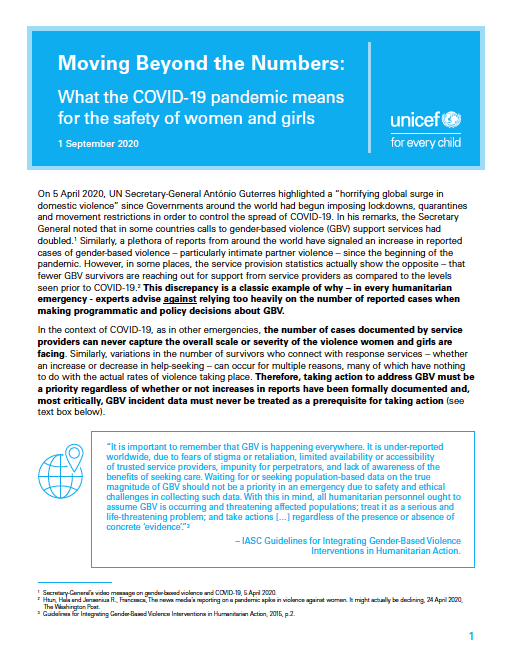The number of gender-based violence cases documented by service providers can never capture the scale or the severity of the violence that women and girls are facing. This is no different in the context of COVID-19.
Our new UNICEF brief, ‘Moving Beyond the Numbers: What the COVID-19 pandemic means for the safety of women and girls’, examines why taking action to address gender-based violence must be a priority regardless of whether increases or decreases in GBV incidents have been recorded. GBV data must never be a prerequisite for action. In order to make effective policy and programming decisions, governments, policy makers, and donors must go beyond the numbers for a more comprehensive understanding of pre-existing drivers of violence and the impacts on women and girls.
The article illustrates some of the limitations of the statistics that have been widely publicized in the context of the COVID-19 pandemic, provides additional contextual information to better understand the risks women and girls are facing, and outlines some priority recommendations to Governments, policy makers, donors and key humanitarian and development actors for addressing gender-based violence in the context of COVID-19.
UNICEF (2020). Moving Beyond the Numbers: What the COVID-19 pandemic means for the safety of women and girls.






